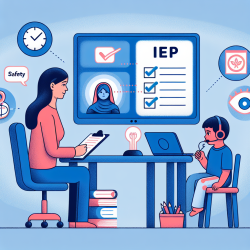The global landscape of mental health care is evolving, with increasing recognition of the need for robust educational frameworks to address mental health issues effectively. A recent study titled "Raising Capacity to Address Mental Health Concerns in Costa Rica" provides valuable insights into how targeted educational interventions can enhance the capacity of local health providers in underserved regions.
The Context and Need for Change
In 2019, a team from the Mayo Clinic embarked on a mission to La Cruz, Costa Rica, an area facing significant mental health challenges due to limited access to specialized psychiatric services. The region's rising suicide rates and the scarcity of psychiatrists—approximately 0.60 per 100,000 people—highlighted an urgent need for intervention.
The team conducted a half-day educational course focusing on suicide awareness and prevention, aimed at local healthcare workers including primary care providers, nurses, and social workers. This initiative was designed not only to provide immediate knowledge but also to evaluate long-term changes in practice and confidence among participants.
Key Outcomes and Implications for Practice
- Increased Knowledge: The educational intervention resulted in a 15.4% increase in correct responses from pre- to post-lecture assessments, indicating significant learning gains among participants.
- Enhanced Confidence: Follow-up surveys showed a decrease in low confidence levels regarding mental health concerns from 35.2% to 0%, suggesting that participants felt more equipped to address these issues post-intervention.
- Sustainable Impact: Six months after the training, 100% of respondents reported changes in their practice, underscoring the lasting impact of the educational content delivered.
Strategies for Practitioners
Practitioners looking to implement similar interventions or improve their skills can draw several lessons from this study:
- Engage Local Stakeholders: Collaborate with local health leaders to identify community-specific needs and tailor educational content accordingly.
- Utilize Bilingual Resources: Ensure language barriers do not hinder learning by employing bilingual staff or translators familiar with medical terminology.
- Leverage Technology: Use digital platforms like SurveyMonkey for follow-up assessments to track long-term impacts and gather feedback efficiently.
- Focus on Interprofessional Education (IPE): Design courses that cater to a diverse audience of healthcare workers to foster collaboration and holistic understanding of mental health issues.
The Path Forward
The Costa Rican experience demonstrates that well-planned educational interventions can significantly enhance the capacity of local healthcare providers in addressing mental health concerns. For practitioners worldwide, adopting these strategies can lead to improved outcomes in their communities. As we continue to face global mental health challenges, such initiatives offer a blueprint for sustainable change.
To read the original research paper, please follow this link: Raising Capacity to Address Mental Health Concerns in Costa Rica.










